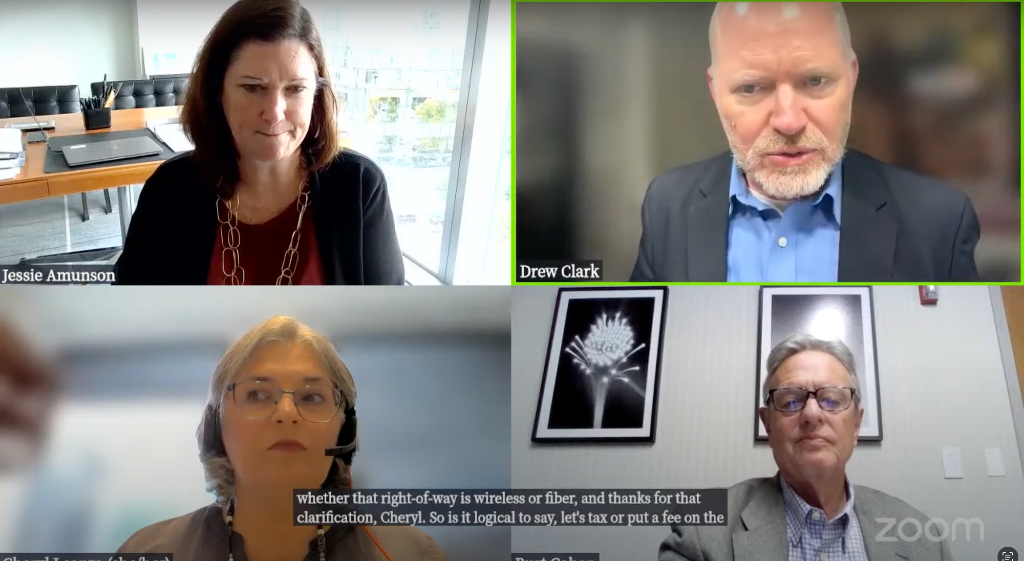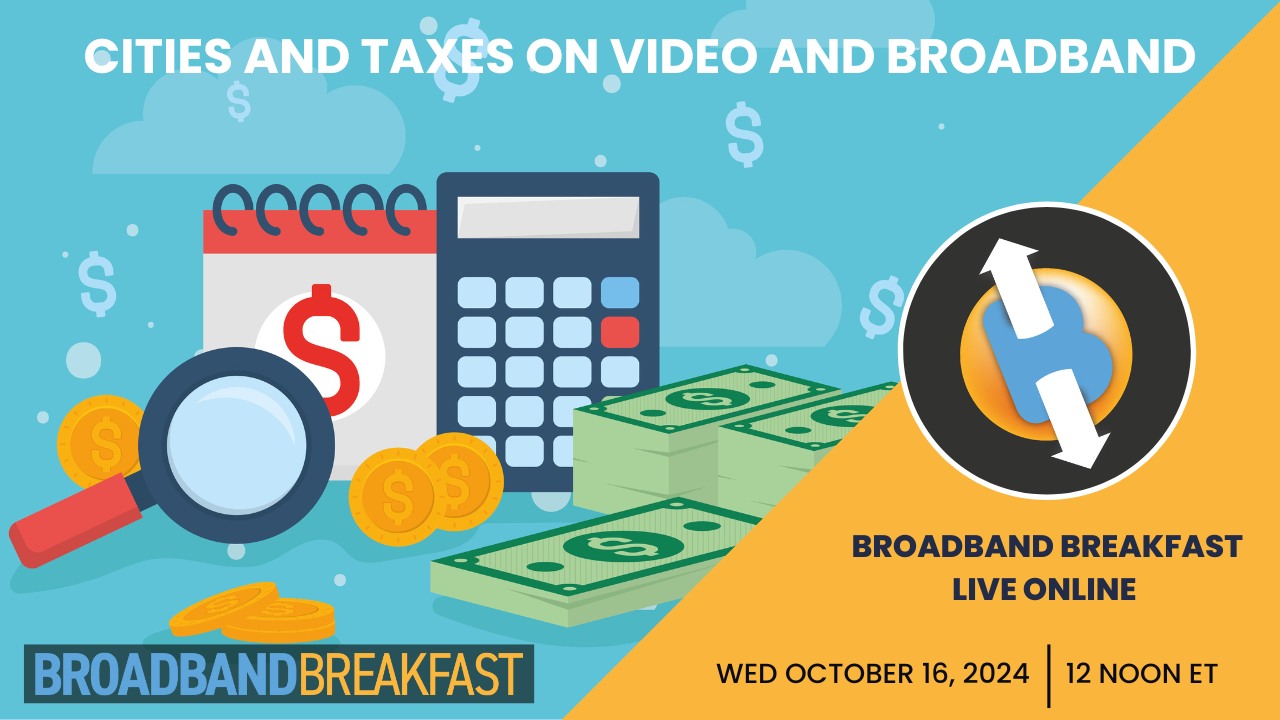Panelists Disagree Over Taxes and Fees for Broadband and Streaming Services
Should streaming video and broadband services be subject to fees similar to those imposed on cable TV providers?
Broadband Breakfast

WASHINGTON, Oct. 18, 2024 — As traditional cable TV subscriptions decline, a debate over the appropriate compensation from communication services using public rights of way took center stage during a Broadband Breakfast Live Online event Wednesday.
The discussion centered on whether streaming video and broadband services should be subject to fees similar to those imposed on cable TV providers.
 Broadband BreakfastBurt Cohen
Broadband BreakfastBurt Cohen
Cheryl Leanza, of counsel at Best Best & Krieger, argued that the current system creates "regulatory arbitrage" where some companies contribute more than others for using public infrastructure.
Today’s regulatory framework largely stems from the Cable Communications Policy Act of 1984, which set a 5% cap on franchise fees for cable operators based on their cable service revenues. However, the law doesn't explicitly address how to treat broadband or streaming services that now often use the same infrastructure.
"Eventually if cable continues on the current trend line, you're going to have a company in the right of way that is paying nothing," Leanza said, referring to cable operators' shift toward broadband services.
Burt Cohen, staff attorney for Connecticut's Office of Consumer Counsel, emphasized the need for a tax structure that is “competitively neutral” to all providers of communication services. He also noted that traditional cable consumers - many of whom are older or lower-income - are currently bearing the brunt of franchise fees while cord-cutters using streaming services remain unaffected.
“Cord-cutting is a misnomer,” Cohen argued. “It’s the same wire attached to every pole or conduit, but only traditional cable subscribers are paying the franchise fees.”
However, efforts to tax streaming services or impose broadband fees have faced legal roadblocks. Jessica Ring Amunson, co-chair of the Appellate and Supreme Court Practice at Jenner & Block, represented the National Cable and Telecommunications Association in the landmark City of Eugene v. FCC case. In this case, the U.S. Court of Appeals for the Sixth Circuit ruled that local franchising authorities cannot impose additional fees on broadband services that are delivered over cable infrastructure.
“The law is clear,” said Amunson. “Franchising authorities are prohibited from imposing fees on broadband services provided over the same infrastructure as cable services.” She added that the recent ruling, based on the plain text of the Communications Act, prevents cities from "double-charging" cable operators for using public rights-of-way.
The Federal Communications Commission has also barred applying the same fee to broadband revenue from cable services, a policy known as the Mixed-Use Rule.
The panelists discussed alternative approaches, including Chicago's entertainment tax on streaming services. They also debated whether fees should be based on infrastructure use or the services provided.
At the end of the day, Leanza emphasized the need for a multi-tiered approach to policy reform. "We need federal policies that are going to empower and allow local decisions to be even-handed," she stated, adding that fairness should be ensured "at the local, state and federal level."

October 16, 2024 - Cities and Taxes on Video and Broadband
Across America, localities are embroiled in a push to tax streaming video and broadband services, driven in part by sweeping changes to streaming video services versus traditional cable service. Central to the debate is the burden imposed upon local rights-of-way as part of the physical connection to homes and businesses. Many municipalities contend that broadband and video streaming services should be subject to franchise fees similar to those applied to cable providers. What is the appropriate compensation for use of rights-of-way? What obstacles might cities face in seeking such fees? And what of the public’s need for public, educational and governmental information? Join for a lively debate!
Panelists
- Burt Cohen, Staff Attorney & Broadband Policy Coordinator, Office of Consumer Counsel, State of Connecticut
- Cheryl Leanza, Of Counsel, Best Best & Krieger LLP
- Jessica Ring Amunson, Co-Chair, Appellate & Supreme Court Practice, Jenner & Block LLP
- Drew Clark (moderator), CEO and Publisher, Broadband Breakfast









Member discussion